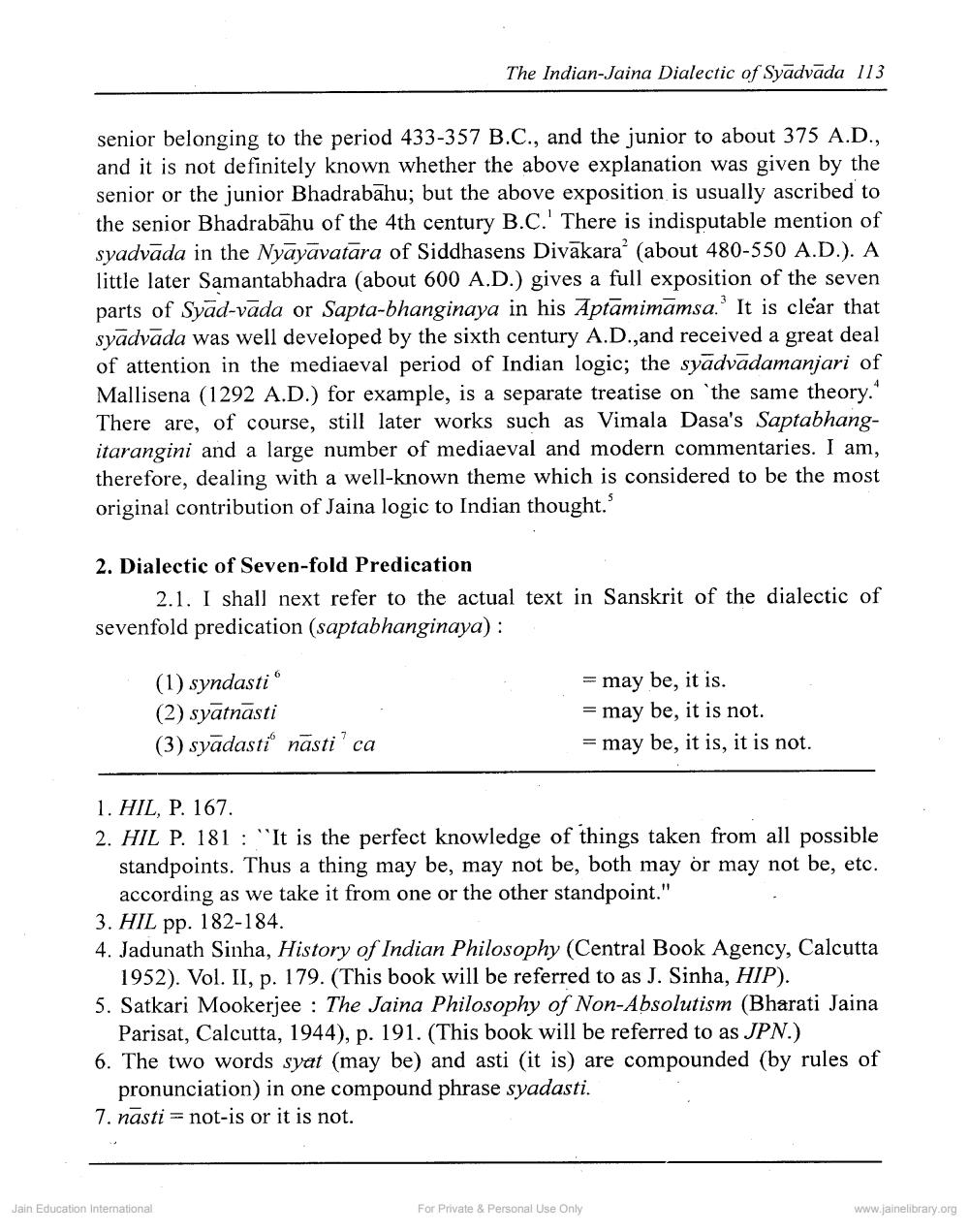________________
The Indian-Jaina Dialectic of Syādvāda 113
senior belonging to the period 433-357 B.C., and the junior to about 375 A.D., and it is not definitely known whether the above explanation was given by the senior or the junior Bhadrabahu; but the above exposition is usually ascribed to the senior Bhadrabahu of the 4th century B.Ç.' There is indisputable mention of syadvāda in the Nyāyāvatāra of Siddhasens Divakara’ (about 480-550 A.D.). A little later Samantabhadra (about 600 A.D.) gives a full exposition of the seven parts of Syad-vada or Sapta-bhanginaya in his Aptamimamsa. It is clear that syadvada was well developed by the sixth century A.D.,and received a great deal of attention in the mediaeval period of Indian logic; the syadvadamanjari of Mallisena (1292 A.D.) for example, is a separate treatise on the same theory." There are, of course, still later works such as Vimala Dasa's Saptabhangitarangini and a large number of mediaeval and modern commentaries. I am, therefore, dealing with a well-known theme which is considered to be the most original contribution of Jaina logic to Indian thought."
2. Dialectic of Seven-fold Predication
2.1. I shall next refer to the actual text in Sanskrit of the dialectic of sevenfold predication (saptabhanginaya) :
(1) syndasti (2) syātnāsti (3) syādasti" nāsti ca
= may be, it is. = may be, it is not. = may be, it is, it is not.
1. HIL, P. 167. 2. HIL P. 181 : "It is the perfect knowledge of things taken from all possible
standpoints. Thus a thing may be, may not be, both may or may not be, etc.
according as we take it from one or the other standpoint." 3. HIL pp. 182-184. 4. Jadunath Sinha, History of Indian Philosophy (Central Book Agency, Calcutta
1952). Vol. II, p. 179. (This book will be referred to as J. Sinha, HIP). 5. Satkari Mookerjee : The Jaina Philosophy of Non-Absolutism (Bharati Jaina
Parisat, Calcutta, 1944), p. 191. (This book will be referred to as JPN.) 6. The two words syat (may be) and asti (it is) are compounded (by rules of
pronunciation) in one compound phrase syadasti. 7. nasti = not-is or it is not.
Jain Education International
For Private & Personal Use Only
www.jainelibrary.org




